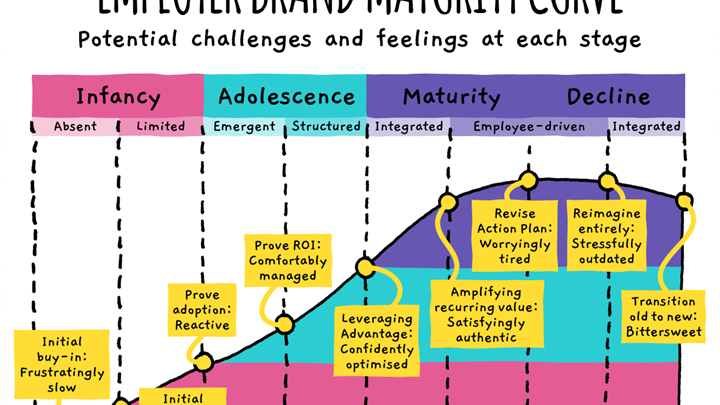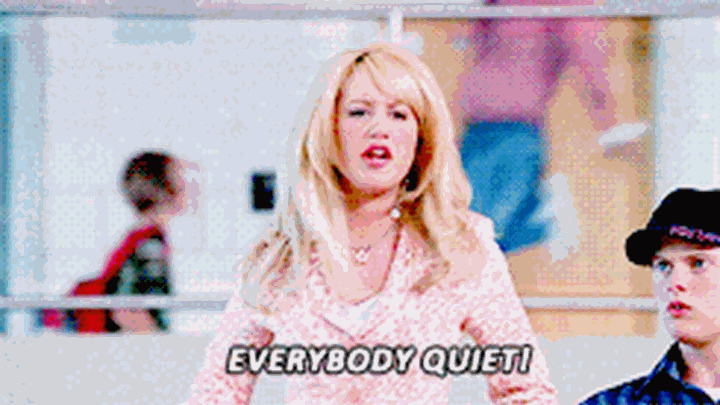How Job Preference Trends Impact Employer Branding
4 min read.

So-called "lazy girl jobs" have provoked much chin stroking among recruitment sector commentators of late. Is it yet more evidence of a malaise among young workers or is there something else at play here?...
The latest employment trend picking up a head of steam in the media, is the so-called "lazy girl job."
Young people, it is reported, are gravitating towards seemingly easy remote gigs that are low in stress, oversight and pressure but offer flexible work and a good salary.
The phrase was coined by TikTok influencer Gabrielle Judge who goes by the handle Anti Work Girlboss on her social media channels.
Is "Lazy Girl Job" a Misnomer?
But is this an accurate indictment of the work ethic of Millennials, Gen Zs and others, or is there a more nuanced explanation behind it? And let’s not even get into the sketchy gender politics behind the phrase.
In essence is it simply a preference for better work-life balance?
“It’s called lazy girl jobs not because we’re being lazy,” Judge explains, “it’s an anti-hustle dig.”
And it is a deliberately provocative term, designed to invoke the ire and interest of a press hostile to anything that suggests workers (particularly young workers) might not be playing by the rules as they see them. ‘The great resignation’, ‘quiet quitting and ‘act your wage’ twisted the knickers of plenty of self-righteous columnists and social media commentators. It’s a canny and effective bit of deliberate mischief making.
The Data Behind "Lazy Girl Jobs"
But is it real? According to data from job search engine Adzuna, there has been a recent spike in popularity for roles associated with lower stress and greater flexibility.
Clicks for legal administrator ads rose by over 520% in the first half of 2023 compared with the second half of 2022. Office administrator ad clicks were up 131% during that time and interest in SEO analyst roles shot up by 113%. Meanwhile, the research found that roles in the more stressful fields, like medicine, are losing favour among job hunters.
Given that Judge only coined the term in May 2023, she may just have put a name to an already existing phenomenon.
Employer branding and “Lazy girl jobs”
If it means anything it underlines the need for adaptable employer branding strategies in a post-pandemic world. While the social media hype focuses on the "laziness" of those pursuing such jobs, the appeal stems less from indolence and more from a desire for flexibility, balance, and alignment with personal values. Add in economic factors like wage stagnation and rising costs, and the trend becomes much more understandable.
Generation Z and Millennials came of age amid seismic economic and technological change. From the Great Recession to the rise of the gig economy and remote work, their experiences have created different expectations around careers.
Writing these young workers off as "lazy" greatly oversimplifies the matter, takes the term much too literally or at worst deliberately misinterprets it.
Emerging trends in job preferences reflect a changing workforce and workplace, not inherent generational traits.
As the talent market rapidly evolves, it highlights the need for an employer branding strategy that is agile, adaptable, and regularly reviewed and reassessed.
With remote and hybrid work gaining acceptance and popularity among workers, highlighting flexibility with regards to when, where and how work gets done is crucial for attracting younger candidates. Promising autonomy and work-life balance beats chest-thumping about grind culture.
In an unsteady economy, prospective employees value job security and paths for advancement. Employer branding should spotlight stability, loyalty, and any opportunities for growth.
Younger workers also care about such matters as organisational values and supporting social causes. Branding that emphasises sustainability, DEI commitments and community gives your employer brand a purpose-driven edge.
From mental health services to mindfulness programs, providing benefits that support work-life balance and wellbeing makes jobs more desirable. Promote these offerings in your branding if they exist.
Employee testimonials that highlight flexibility, remote work options, career growth and your company's culture add authenticity that no corporate slogan can match. Enable employees to be brand ambassadors and to evangelise about your culture on social media, employer review sites, and your own careers site.
The danger that the ‘lazy girl’ trend has brought to the fore is pigeonholing Gen Z, Millennials, or any demographic with certain attributes. Particularly, as in this case when the term is (deliberately or otherwise) misinterpreted. The focus of an effective employer brand should be on identifying common values and attributes that attract talent across a range of demographics.
If your company culture cannot offer what so-called ‘lazy girls’ seek, then it should be clearly outlined in your EVP (Employee Value Proposition).
Keeping your employer brand relevant
The pandemic radically shifted work preferences for people of all ages and backgrounds. Change is now the only constant. Given this state of flux, be sure to re-evaluate your employer branding strategy at least annually to ensure your messaging still resonates. Look at our piece on the Employer Brand Maturity Curve to analyse what stage your employer brand is at.
The "lazy girl job" trend may be nothing more than mere clickbait headline writing. But for employers seeking to attract modern talent, it highlights the need for more thoughtful branding tailored to today's workforce values. While remote work enables new flexibility and equilibrium, people still seek engagement, purpose, and professional growth.
By emphasising work-life balance, stability, social impact and employee wellbeing, brands can convey that they understand younger generations' needs without stereotyping. Agile employer branding can defeat the ‘lazy girl’ hype with meaningful messaging that resonates across demographics.
Taking a nuanced view allows smart employer brands to pivot effectively and align with shifting conditions. Savvy organisations will adapt branding to drive engagement and loyalty for both existing employees and the emerging workforce. Those who cling to past assumptions risk fading into irrelevance.
The "lazy girl job" meme will soon be replaced by the next viral idea. But effective employer branding endures when built on understanding what draws talent.
As the workforce evolves, brand strategies must do the same - not by chasing trends, but by doubling down on the values that underpin why people work.




